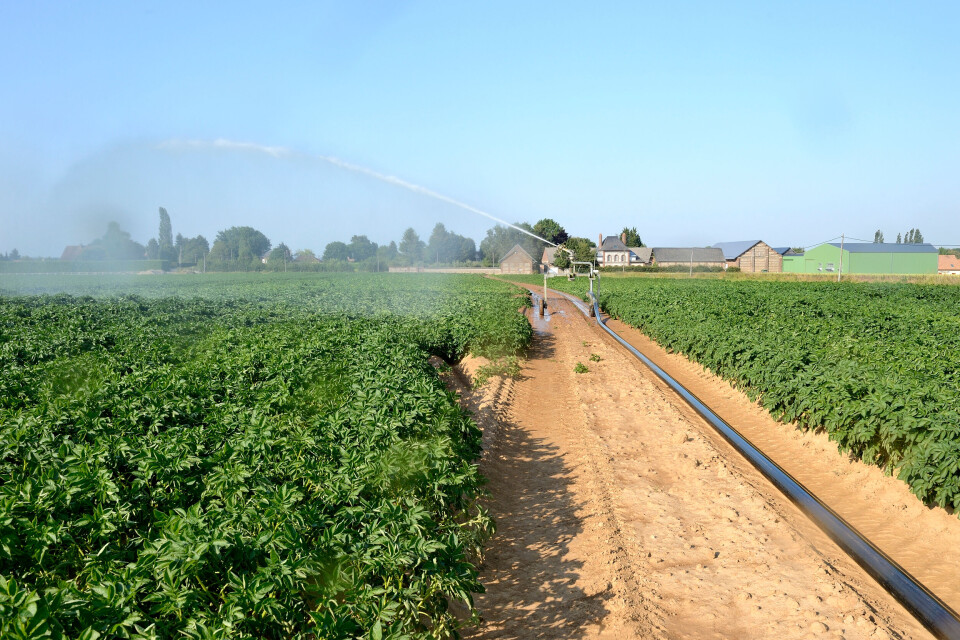-
Why the cost of water is rising for homes across France
Factors including inflation and increased anti-pollution measures have been blamed
-
Drought alerts raised in France: where is impacted?
A lack of rainfall means some water tables are at low levels, see any restrictions in your area
-
Price of water for homes in Lyon now depends on how much you use
The system aims to reduce consumption but is not without issues
Water restrictions not used effectively during France’s drought
The rules were brought in too late and cannot be enforced, say experts

Continuing water shortages have highlighted the limits of France’s reliance on temporary restrictions for homes and businesses.
In mid-August, 78 departments were affected by water restrictions.
Forty were on ‘crisis’ alert, meaning water is limited to essential uses, such as drinking, hygiene and fighting fires.
Summer rain is absorbed by plants
While July saw heavy rainfall across much of the country, this was not enough to make up for a dry winter.
At the start of August, 72% of groundwater tables were below usual levels for the time of year, similar to the situation in 2022.
Rain during the winter is the most effective for recharging water tables, as during the summer, most of the rainfall is absorbed by plants instead of filtering through the ground.
Read more: Summer rain has not helped France’s low groundwater levels - minister
Early restrictions most effective
Jean Rousselot, freshwater manager at WWF France, said: “Restrictions are the final part of the strategy – crisis management. They are more effective the earlier they are taken.
“We saw in 2022 that certain prefects began preparations in January or February, whereas others didn’t get around the table until May or June, once the issue was already present.”
A lack of reliable data measuring water levels is another obstacle to good decision-making, he added.
“For a river, one point might be taken to represent 1,000km so you lose finesse.”
Restrictions only every five years in normal system
A spokesman for the BRGM geological research office said that last year, “in zones where it hadn’t rained for several weeks, the restrictions appeared to have slowed down the lowering of groundwater levels.”
Mr Rousselot said the reliance on restrictions shows that the situation is unsustainable.
“In a normal system, we should use them once every five years, but we’ve seen them regularly since 2017, apart from in 2021.”
Fines are no deterrent
In a report published this summer, France’s supreme audit institution the Cour des comptes concluded that reducing the amount of water extracted is “the only solution” for managing future shortages.
The court also identified weaknesses in the state’s inspection of water extracted for purposes such as irrigation, since only extractions of more than 10,000m3 (7,000m3 in some areas) a year must be declared.
There is also a lack of inspections when restrictions are put in place, Mr Rousselot said, with often only 10 agents in charge of covering a whole department. Ignoring the rules is punishable by a fine of up to €1,500 for individuals, or €7,500 for businesses.
Read more: France drought: checks find hundreds breaking water usage rules
“Even when fines are issued they are not always a deterrent as the financial benefit of irrigation can be even greater,”
Mr Rousselot said, adding, however, that a large majority of farmers follow the rules.
As a result of shortages in August, 67 communes had to be supplied with water via a tanker, and 18 more by bottles. In 2022, more than 1,000 areas had to implement temporary solutions.
Shortages also have an effect on tourism: the Refuge de la Selle mountain accommodation in the Alps had to close in August after its water source dried up completely.
You can see current restrictions in your area at vigieau.gouv.fr
Related articles
Winemakers face new problems each year due to climate change in France
French town’s drought ‘solution’: painting its dried-out grass green!
Drought damage claims could get easier due to reforms and Météo-France
























